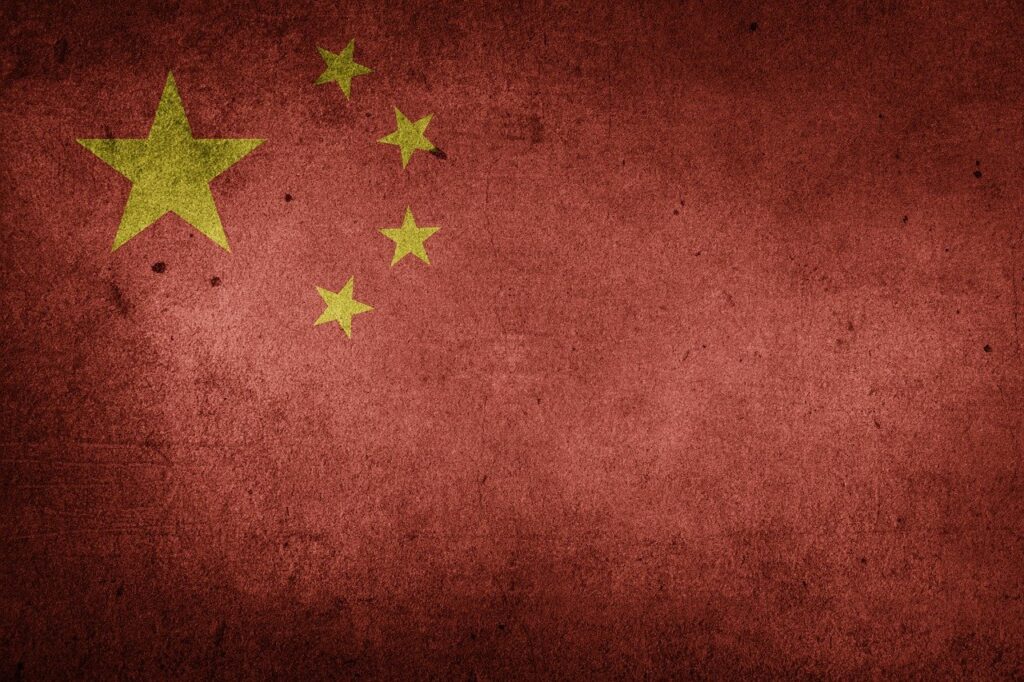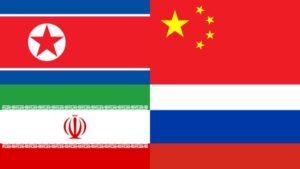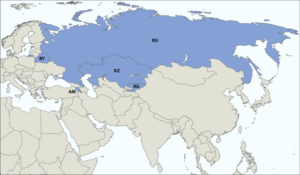- The Chinese strong growth in recent decades has given way to a sharp economic slowdown;
- The reasons for this slowdown threaten Chinese goals in the International System;
- American hegemony, which was being threatened by Chinese power, might be maintained throughout the 21st century
China’s Gross Domestic Product (GDP) has increased steadily and at great speed for over 40 years and the country managed to maintain an average growth of 10% per year between 1991 and 2010.
Not by chance, the expression “Chinese growth rate” began to be used internationally. However, since the atypical years of the COVID-19 pandemic in 2020 and 2021, a new phase of slowdown in Chinese GDP growth has begun.
In addition to the pandemic, other factors influence this slowdown, such as the “Zero COVID” policy, the economic intervention of the Chinese government and even the real estate sector.
Factors such as these mean that even in 2023 Beijing will experience lower than usual economic growth and have its objective of economically matching the United States postponed.

The COVID-19 Pandemic and the “Zero COVID” Policy
One of the most relevant factors that favored the decline in Chinese growth was the COVID-19 pandemic and the “zero covid” policy, in effect until December 2022.
After the omicron variant, most countries started to defend the discourse that, when possible, governments plan to change the strategic approach to public health so that it is possible to live with the virus.
On the other hand, China still believes and puts efforts into the complete elimination of the virus from its territory, despite the immense difficulty due to the high transmissibility of the omicron variant.
To this end, the Chinese government has implemented extremely strict and restrictive measures for citizens, such as massive lockdowns, border control and mass testing.
These measures strongly affected the Chinese economy due to the impact on the production line of domestic companies, on the decreasing consumer demand and even on domestic and international tourism in the region.
The Crisis of the Chinese Real Estate Market
The real estate sector represents ¼ (one quarter) of China’s Gross Domestic Product and real estate loans represent about 20% of loans in the Chinese banking system, according to a report by the ANZ bank.
This fact highlights the great importance of the sector for the Chinese and world economy, due to the country’s interconnection with other economies.
Chinese construction companies usually work with a pre-sale system in which the property is sold before construction begins and for a long period. In addition, the 1998 real estate reform in China caused the real estate supply to grow rapidly. Finally, another reason for the overheating of China’s real estate market is the cultural factor where buying a home is often a prerequisite for getting married.
However, in addition to the numerous credits granted to the population, Chinese banks also provided abundant credit to property developers, which triggered builders’ indebtedness and caused an increase in property prices.
This increase in values makes it difficult for citizens to access property, and the high debt worries the government. Therefore, in order to reduce the sector’s debts, in 2021 the Chinese government made it difficult for promoters to access credit, eliminating a financing channel.
This measure ended up triggering a wave of suspension of payments by some companies and the most relevant case was that of the former number 1 in the sector, the real estate developer Evergrande, with approximately 300 billion dollars in debt.
The Evergrande crisis provoked demonstrations by buyer citizens in 2021, but in 2022 a real estate loan payment strike began.
In view of the delays in the works, buyers of unfinished properties stopped paying their financing and said they would not pay again until the works are resumed.
Within a month, the strike had spread to more than 300 projects in 50 cities across China, resulting in worldwide concern for the Chinese economy.
In analysis, there is a possibility that the need for new real estate will drop considerably in China, since there are already “ghost cities” and many unfinished complexes.
Furthermore, even with ample supply, prices have been heavily influenced by real estate speculation and continue to rise, making real estate increasingly less affordable for some Chinese.
The Repression and Regulation of Technology Companies
Another factor not aligned with the Chinese goal to catch up with the United States is the repression of the technology industry.
In recent years, the Chinese government has created a regulatory siege in the technology sector and has even affected some giants in the area such as Tencent, DIdi and the company Alibaba, known for its extensive international e-commerce.
The government claims this was an attempt to ensure developers had healthier balance sheets, but as a result it also forced many of them to stop borrowing and selling assets, limiting their ability to continue growing.
Even though China’s government was communist, after Mao’s Tsé-Tung death, Beijing opened space for private companies – but with restrictions – through the policy of “reform and reopening” implemented in the late 1970s.
So under analysis, one of the reasons for the current restrictions imposed on technology companies may be the communist / socialist character of the government that defends “common prosperity” and seeks to combat inequality.
The Taiwan Factor
The Taiwanese island has become one of China’s most obvious weaknesses in 2022, especially after Nancy Pelosi’s visit to Taipei.
Beijing and Taipei have had diplomatic problems for years, but after Russia’s invasion of Ukraine, tension between the two governments has intensified. This is because when analyzing the war in Ukraine, Taiwan is concerned that the same could happen in its territory if there is a Chinese invasion.
The disagreement exists because the Chinese government considers Taiwanese territory as an inseparable part of China. However, Taiwan claims that Beijing has never ruled the island and considers itself an independent nation.
Therefore, since the Russian invasion of Kiev, there has been uncertainty and the Chinese threat to the island, and it is believed that if Russia achieves its objectives in Ukraine, China may be motivated to try the same in Taiwan.
Under analysis, China’s imperialist and expansionist attitude towards Taiwan could threaten the country’s economy, as well as Russia’s.
In the event of a Chinese invasion of Taipei, several countries could implement economic sanctions on Beijing, as well as substitute imports made from China to new trading partners, isolating the country internationally.
Why the Slowdown of the Chinese Economy Matters for the Future of the Competition for Global Hegemony between Beijing and Washington.
The rapid growth of the Chinese economy has stolen the spotlight in recent decades and raised some hypotheses on the international stage.
During the Chinese boom, many researchers believed that the end of American and Western hegemony was imminent and the future of the new international order lay in Asia.
However, the current Chinese approach, which in a way leaves the country more closed to the world, converges with some of the well-known interests of the leaders, such as to match the United States militarily and economically.
Therefore, the slowdown of the Chinese economy is important, as this could define whether in the next 50 years:
The world will continue to be dominated by American hegemony;
If China is just going through a moment of crisis, it will recover and unite with American and Western hegemony creating a bipolar world;
Or whether China will use the current lesson to bounce back and become more powerful than the US by weakening Washington’s influence around the world.
Finally, one of the only current certainties about the Chinese objectives is the total closure of the economy as it was before and the concern to continue attracting foreign investment while keeping the doors open to the international market.










[…] China was the surest guarantee that a deal with Iran would last. The two sides agreed to bury the […]
[…] addition to combating inequality, unemployment and poverty. Furthermore, the organization seeks to free itself from the economic and power hegemony of the United States, trying to shape the world to its own benefit, reducing dependence on the North American […]
[…] Chinese de-risking is a way that the United States found to try to reduce the geopolitical risk of high American dependence on the Chinese economy. This strategy also aims to slow the growth of the Asian country, especially in the technology industry. This would also be a form of decoupling, which could affect China in its objectives of surpassing the North American country. […]